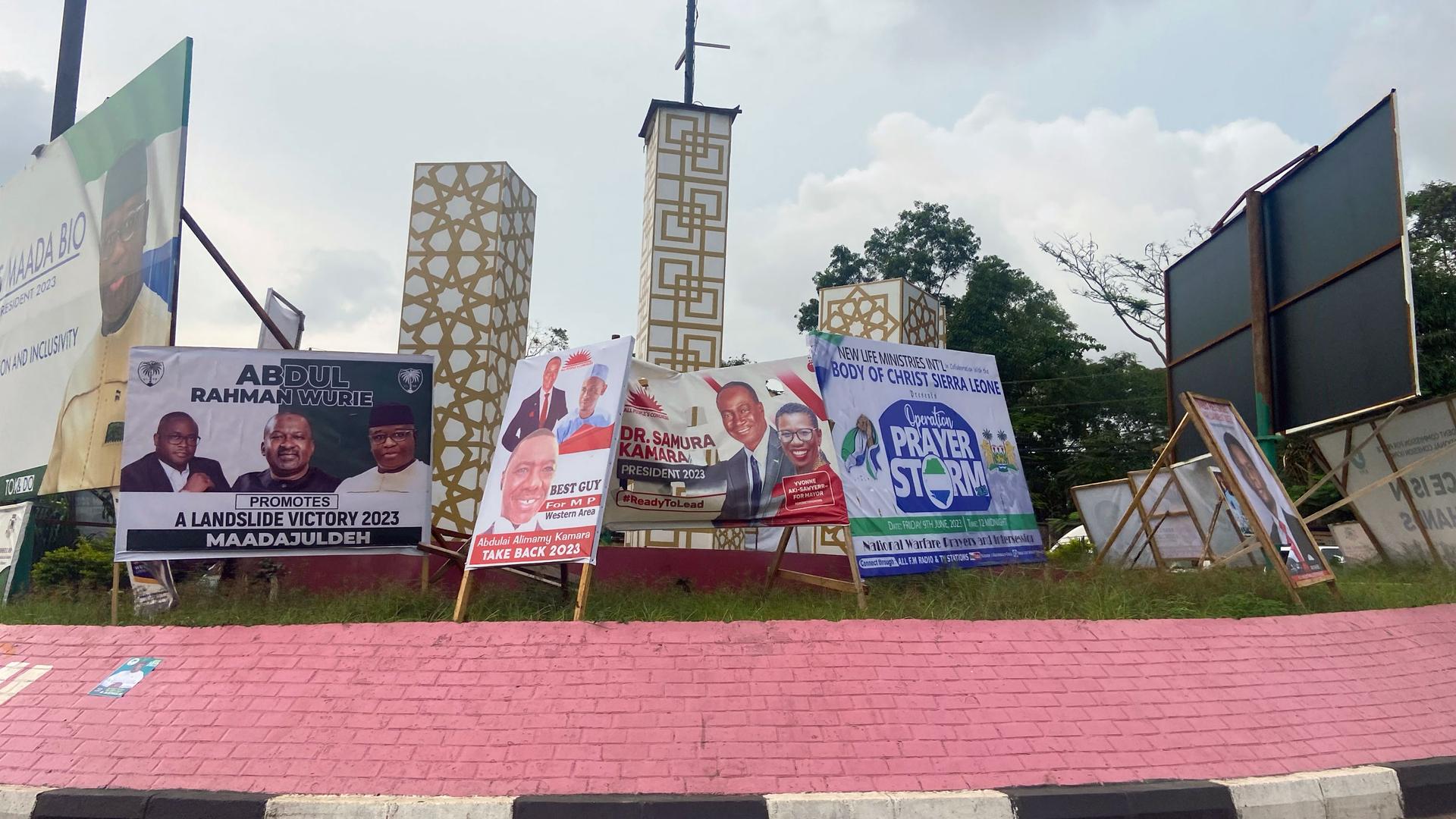At the bustling Black Tank market in Freetown, food vendor Hande Sesay voiced apprehension about Sierra Leone’s current economic state ahead of this Saturday’s presidential elections.
Sesay, now 60 years old, has witnessed several political regimes in Sierra Leone since the nation gained its independence from Britain over six decades ago.
“The economic predicament we face today is undeniably tough,” Sesay said. “The prices of rice, sugar, oil, and other food items have gone through the roof. So for me, this election is an opportunity to cast our votes in favor of the person who possesses the vision and capability to make Sierra Leone better again.”
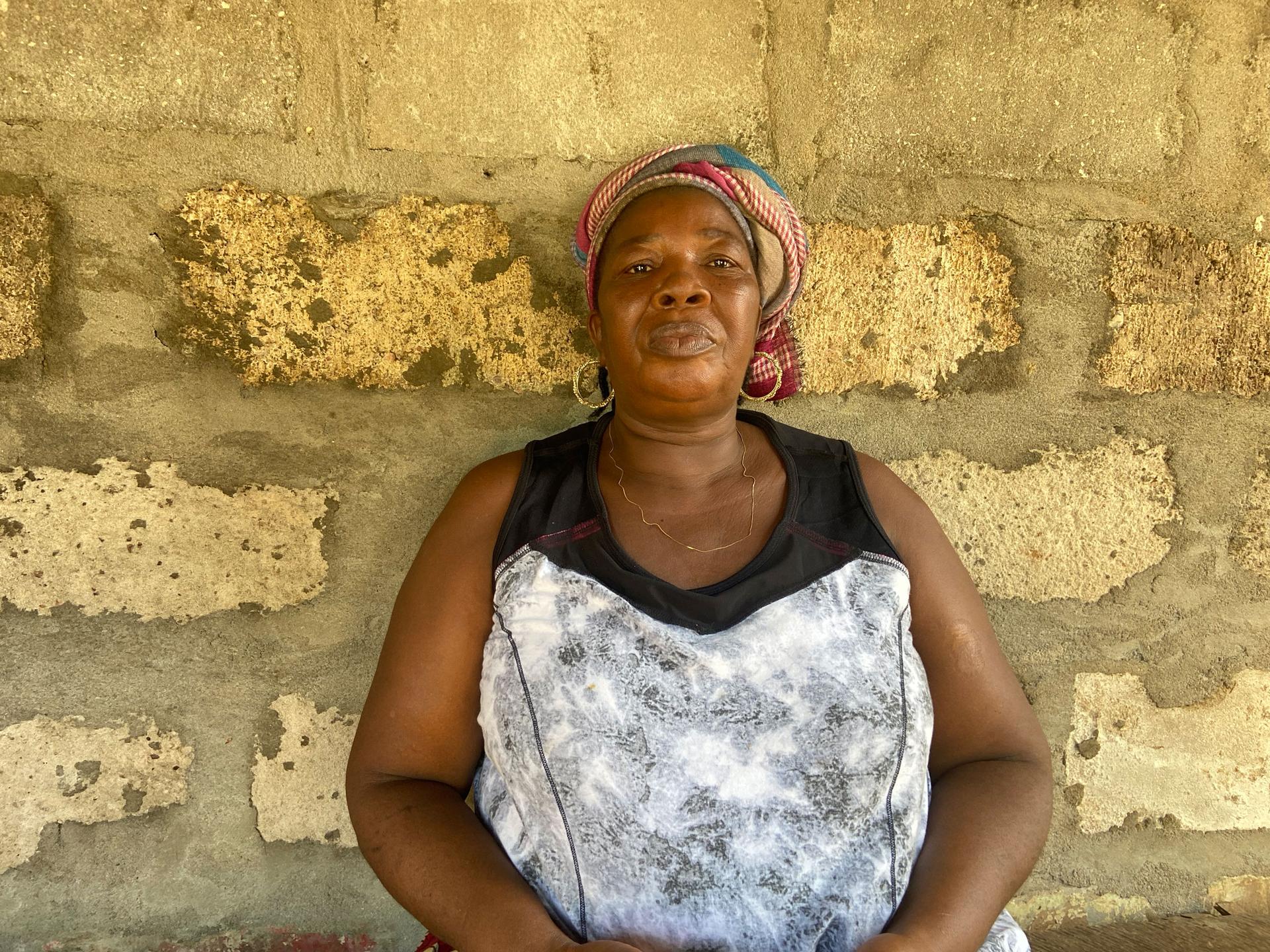
As the country prepares for this crucial election, economic stagnation, corruption and national security are top issues for voters and main contenders alike.
Incumbent President Julius Maada Bio, with the Sierra Leone People’s Party (SLPP), is seeking a second term. He is facing off against Samura Kamara, of the All People’s Congress (APC), a formidable opponent who narrowly missed victory in the previous election.
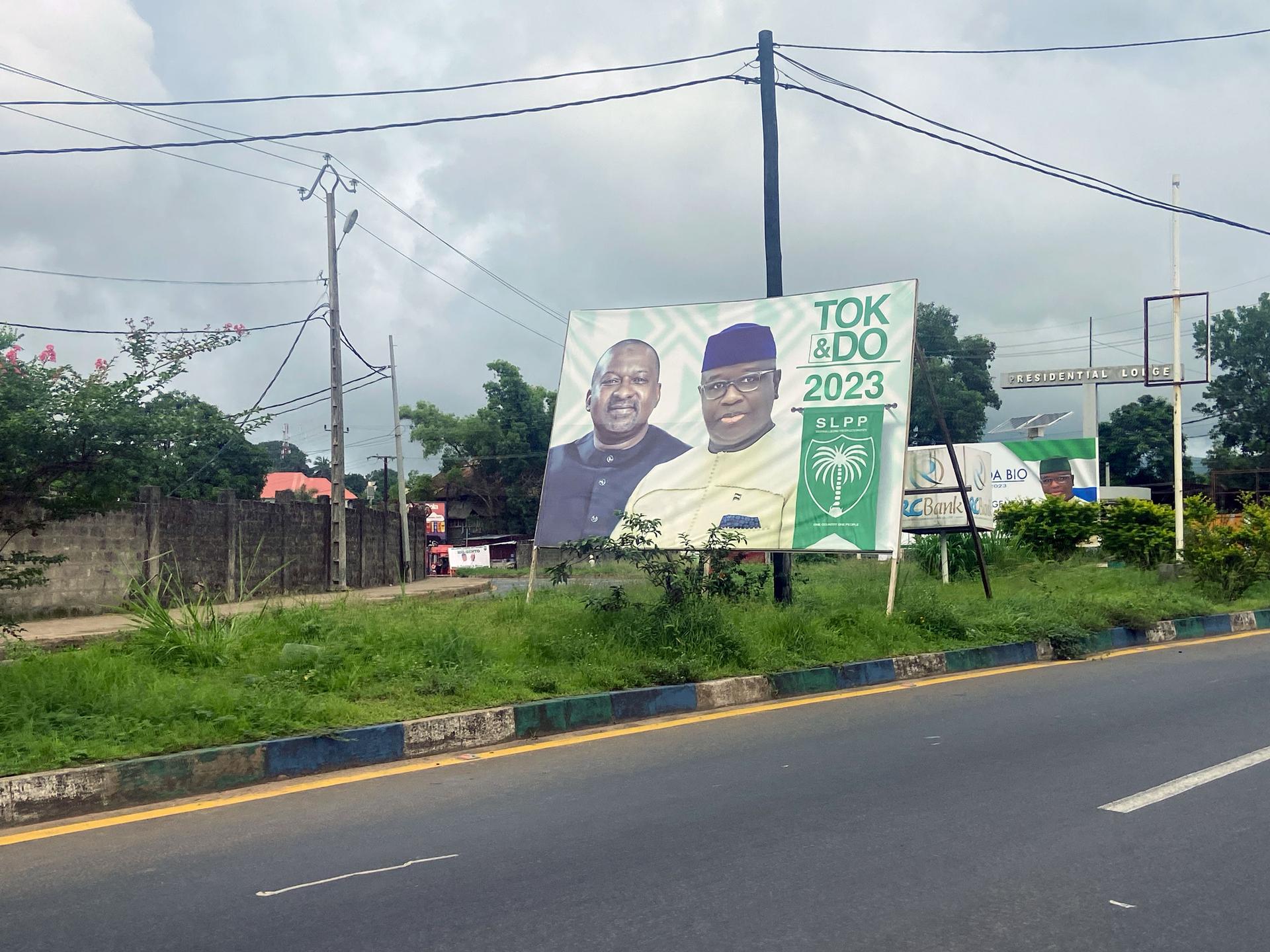
Five years prior, Bio emerged victorious in the presidential election, securing a narrow lead of 43.3% in the first round over Kamara, who received 42.7% of the votes. The winner needs 55% of the vote to clinch victory in the first round or it goes into a runoff within two weeks. Bio went on to secure a narrow win in the second round. Kamara lost despite his endorsement by outgoing President Ernest Bai Koroma, who himself was ineligible to run for reelection, having served two terms in office.
The rising cost of living led to protests in Freetown and other parts of the country last August. The demonstrations resulted in the deaths of 20 people as security agents fired at protesters.
Sierra Leone, a diamond-rich nation with a population of nearly 9 million, grapples with high poverty rates, with two-thirds of the people living on less than $2 per day.
The country is still struggling to recover from an 11-year civil war that ended in 2002, only to face subsequent challenges such as the Ebola outbreak in 2014, and more recently, the COVID-19 pandemic.
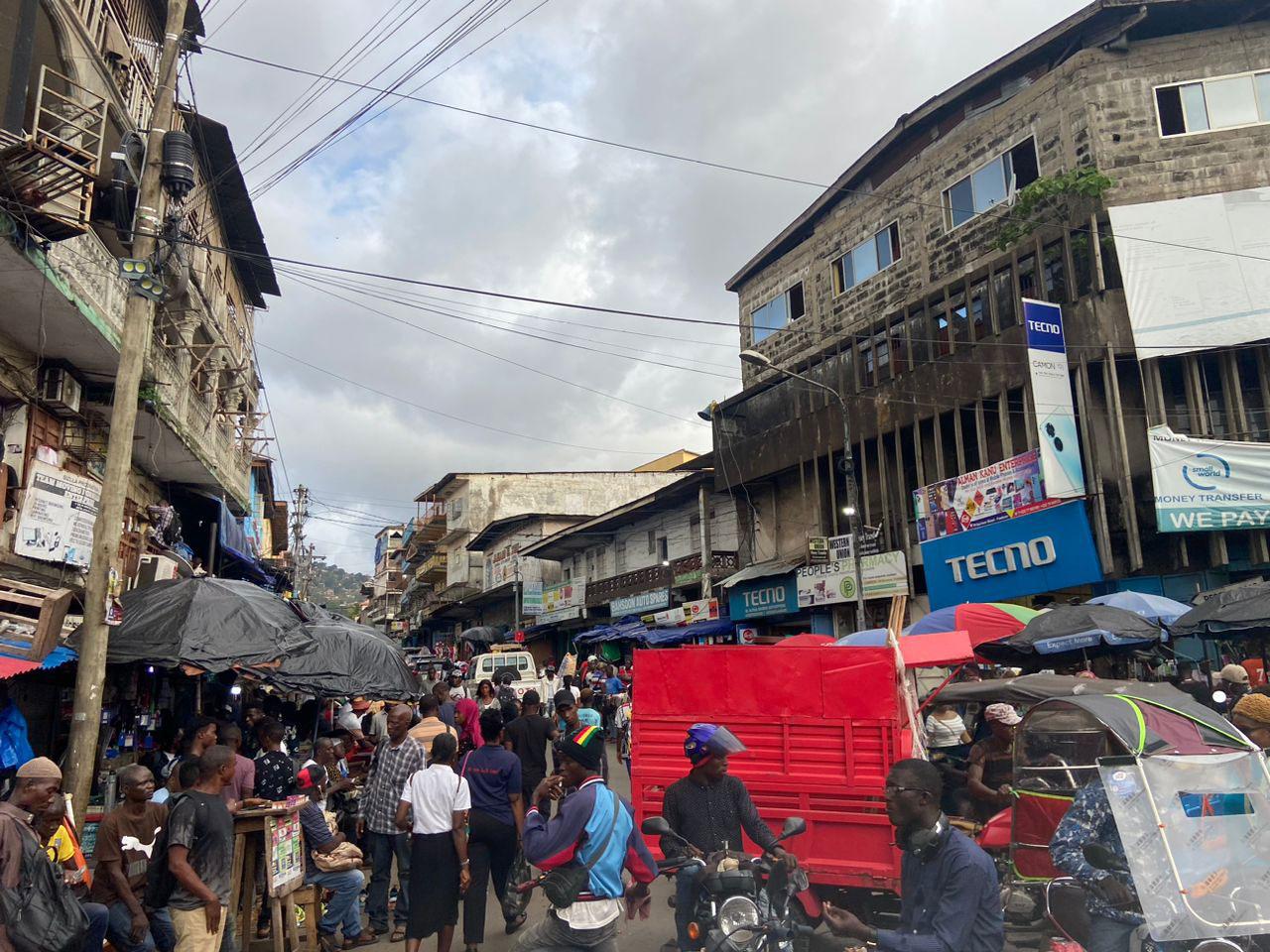
As of April, Sierra Leone, which has one of the world’s weakest currencies, saw inflation rise to more than 43% — from a high of more than 41% in March — and the exchange rate against the US dollar is under pressure, according to economic analysts.
The dire economic situation, however, is not the only concern dominating this year’s election — peace is also paramount.
“The most important thing we want in this election is peace,” Sesay said. “Because when there is war, the rich can always find refuge. It is always poor people like me who suffer the most.”
Fatmata Bangura, a vegetable seller at the Black Tank market, shared similar sentiments.
“Sierra Leone’s strength lies in its diversity, and it is high time we leveraged it to build a united nation,” Bangura said. “Our next leader should be someone who can bridge the gaps between different communities, promote dialogue, and ensure equal opportunities for all.”
The upcoming election holds significant weight, with nearly 3.4 million registered voters, representing nearly half of the country’s population, eagerly waiting to cast their ballots.
Between Bio and his contender, Kamara, the electoral outcome is expected to hinge upon the younger demographic, as people under the age of 35 constitute roughly 60% of the voting-age population.
Kemoh Sowah, a professional driver from the Kaningo neighborhood in Freetown, said young people are on the lookout for candidates that prioritize youth-centered issues like unemployment.
“We need jobs, we need space for the youth. We need representation everywhere to develop the country till we see that Sierra Leone is a better nation,” Sowah said.
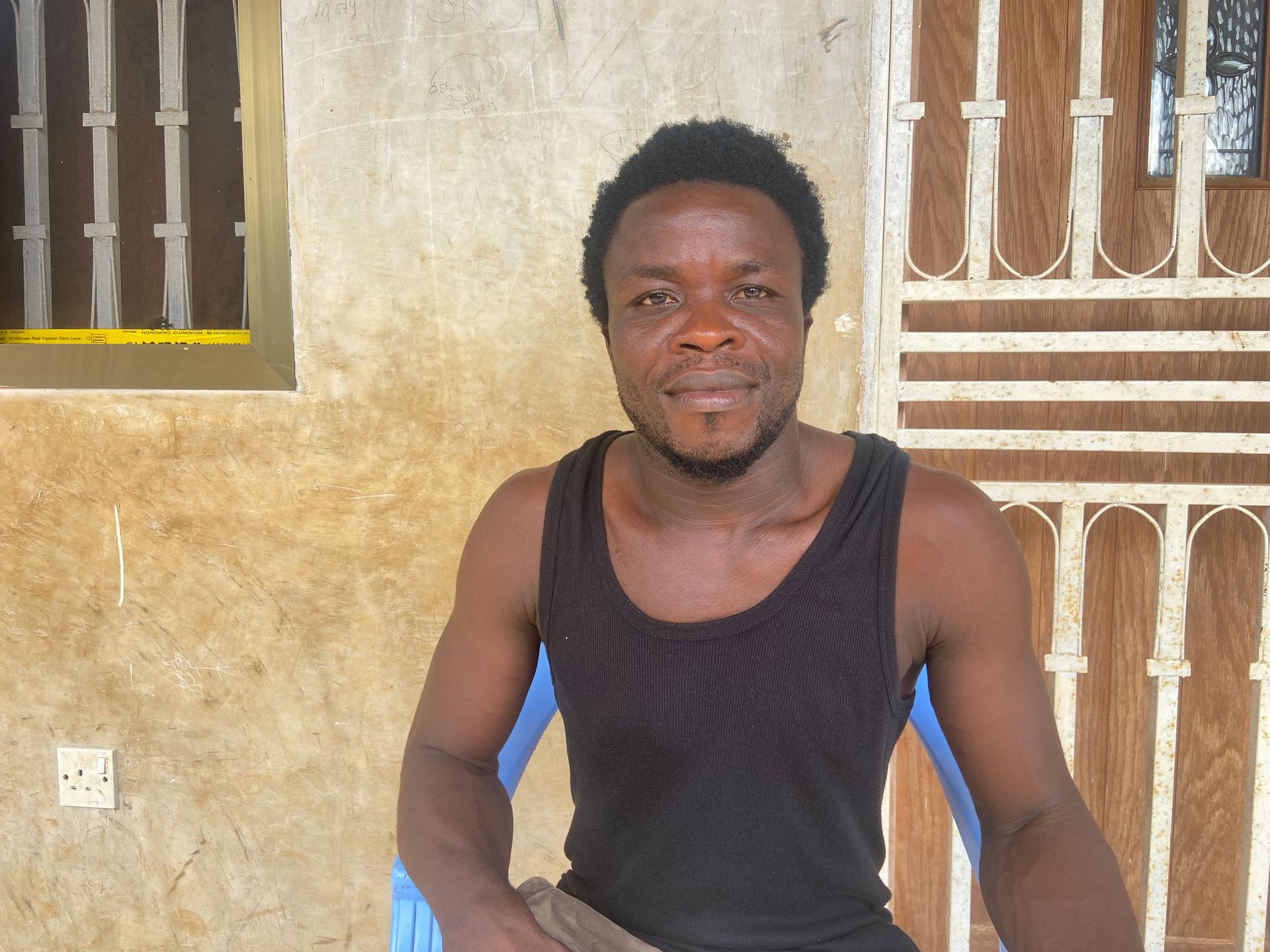
While Sierra Leone has been lauded as one of Africa’s most successful post-conflict states, its democracy remains fragile.
The prevalence of violence among disgruntled youth remains a critical issue, with approximately 70% of young people underemployed or unemployed.
President Bio, whose achievements include free, quality education and social welfare initiatives, has promised a youth employment scheme with the aim of creating 500,000 jobs in five years. Kamara also promised to intensify efforts in job creation and pledged to work toward transforming Sierra Leone from a consumption to a competitive production economy.
For Ibrahim Marah, a student at the Makeni University in northern Sierra Leone, economic recovery cannot be achieved without addressing corruption.
He said the next leader must not only prioritize anti-corruption measures but also foster a culture of accountability and transparency.
“Our fight against corruption should be relentless, and we must hold our leaders accountable for their actions,” Marah said.
Opposition political parties have expressed concern regarding the electoral process and voter registration.
In late 2022, Bio proposed electoral reform, implemented by the Electoral Commission for Sierra Leone. It replaces the current way of electing representatives, where seats are assigned based on the proportion of votes each party receives. With a minimum threshold of 11.9%, this may leave out smaller parties.
Despite political controversy, the Supreme Court deemed the reform legal in January this year after a challenge by the main opposition APC.
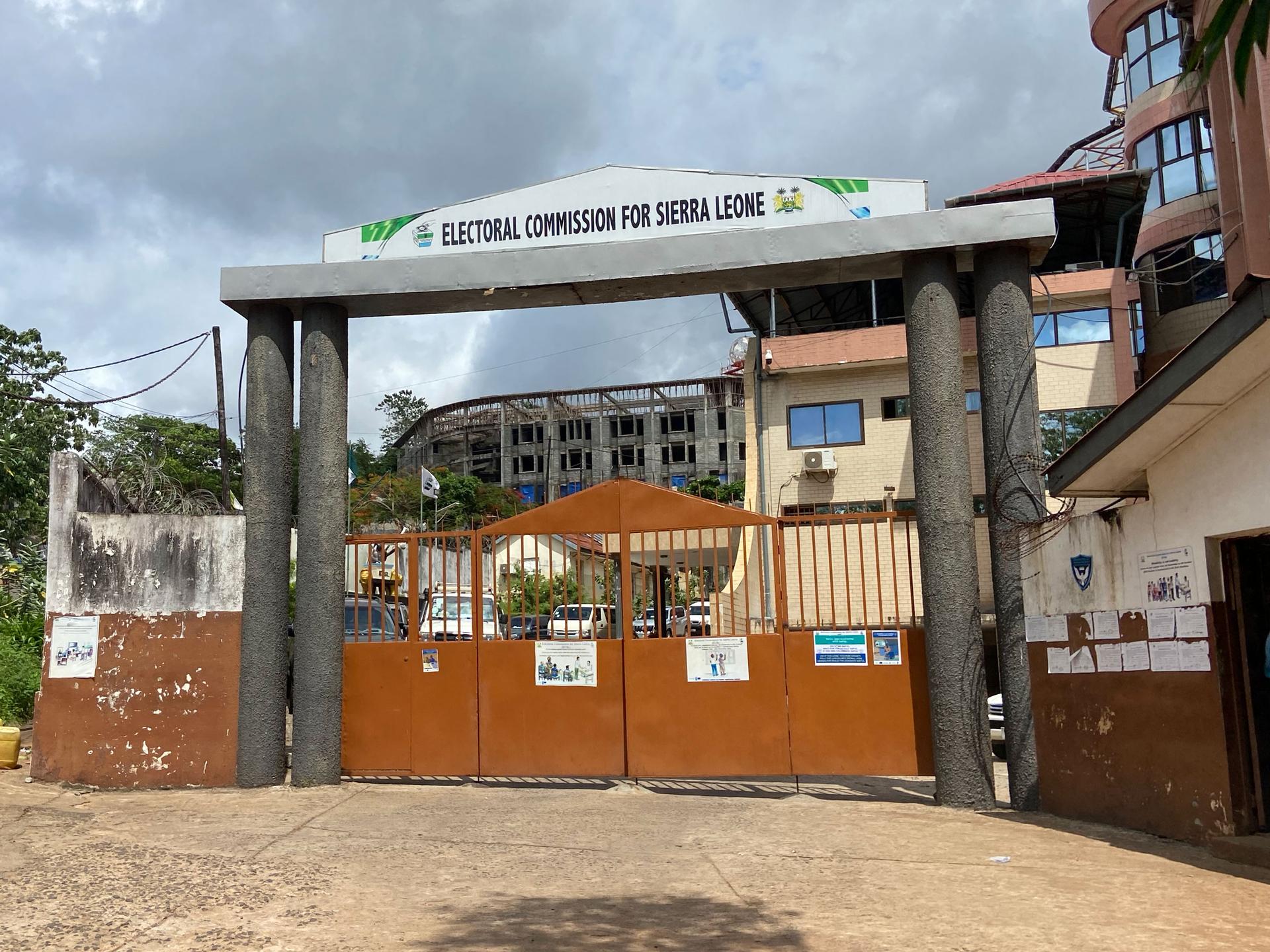
While previous elections have also faced delays and logistical issues, Christopher Jones, with the Electoral Commission for Sierra Leone, reassured the public that the upcoming election will be “free, fair, transparent and credible.”
However, skepticism remains among some civil society organizations.
Charles Keif-Kobai, executive director of FORWARD, an organization that empowers vulnerable individuals in Sierra Leone, highlights the country’s divisive politics — especially around ethnicity.
“Our politics has been an ethnic census as to which tribe carries the largest endorsement in the country. And this is why we are polarized, the country is divided, and it’s a recipe for violence,” he said.
Security analyst Adib Saani said Sierra Leone’s peaceful election holds greater significance against the backdrop of escalating regional political turmoil — referring to recent troubles in Senegal, Burkina Faso, and Mali.
“A successful and peaceful election in Sierra Leone can serve as a beacon of hope for the entire region. It can demonstrate that political stability and progress are achievable through peaceful means,” Saani said, adding that this could inspire neighboring nations to reevaluate their own political processes and strive for peaceful transitions of power.
With the election just days away, the country stands at a critical juncture.
Freetown driver Sowah has a message for his peers:
“You don’t need to go to the streets to create violence. You don’t need to go to the streets and create chaos. Go out and vote peacefully,” he said, “and then go back home.”
Our coverage reaches millions each week, but only a small fraction of listeners contribute to sustain our program. We still need 224 more people to donate $100 or $10/monthly to unlock our $67,000 match. Will you help us get there today?
